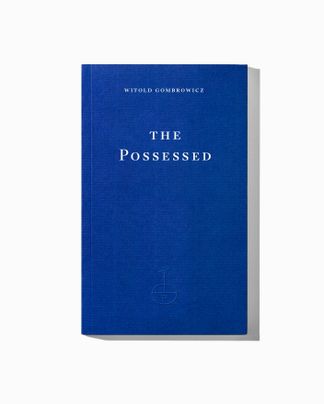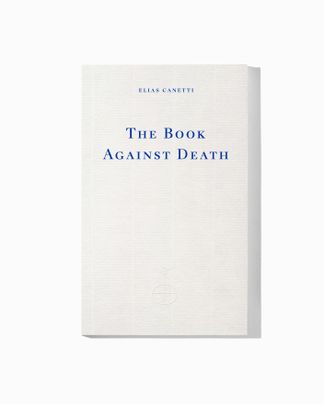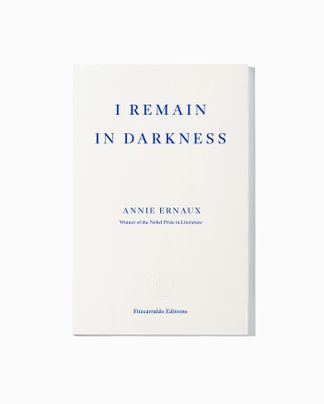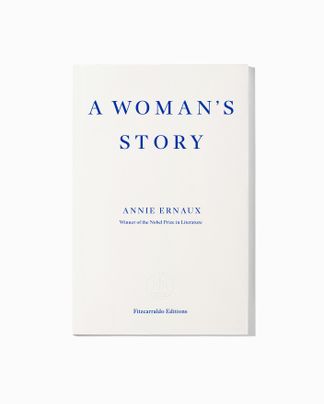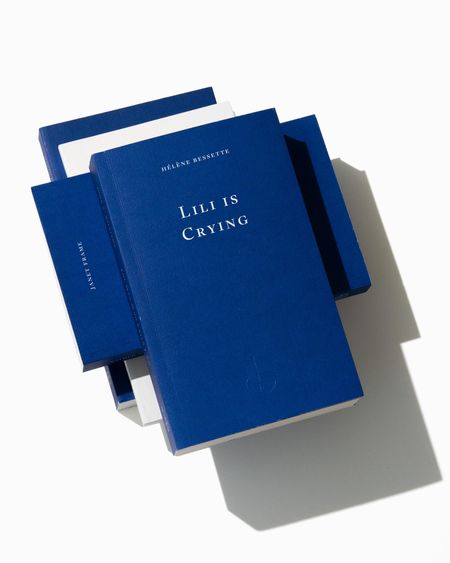Long considered one of Simone de Beauvoir’s masterpieces, A Very Easy Death is a profoundly affecting, day-by-day recounting of her mother’s final days after she is hospitalized following a fall. Though a devout Catholic, her faith is subsumed by her terror of death, and as her body fails, she clings to life with fierce, primal desperation. In depicting her mother’s refusal to ‘go gentle’ while her autonomy and dignity are taken from her, Simone de Beauvoir ‘shows the power of compassion when it is allied with acute intelligence’ (Sunday Telegraph). Powerful, touching and sometimes shocking, this is an end-of-life account that no reader is likely to forget.
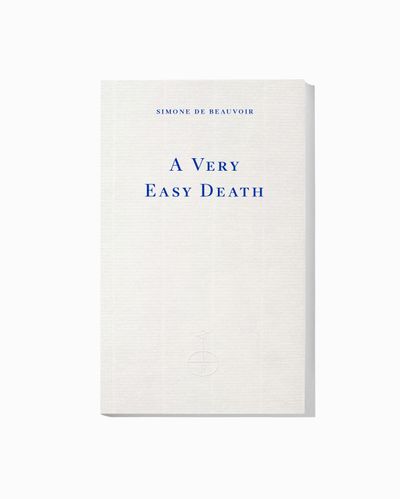
A Very Easy Death
Translated by Patrick O’Brian, with an introduction by Ali Smith
Fitzcarraldo Editions Classics No.2 | French paperback with flaps, 114 pages
Published 28 June 2023
A Very Easy Death
Translated by Patrick O’Brian, with an introduction by Ali Smith
At four o’clock in the afternoon of Thursday, 24 October 1963, I was in Rome, in my room at the Hotel Minerva; I was to fly home the next day and I was putting papers away when the telephone rang. It was Bost calling me from Paris: ‘Your mother has had an accident,’ he said. I thought: she has been knocked down by a car; she was climbing laboriously from the road to the pavement, leaning on her stick, and a car knocked her down. ‘She had a fall in the bathroom: she has broken the neck of her femur,’ said Bost. He lived in the same building as my mother. About ten o’clock the evening before, he had been going up the stairs with Olga, and they noticed three people ahead of them – a woman and two policemen. ‘It’s the landing above the second floor,’ the woman was saying. Had something happened to Madame de Beauvoir? Yes. A fall. For two hours she had crawled across the floor before she could reach the telephone; she had asked a friend, Madame Tardieu, to have the door forced open. Bost and Olga followed them up to the flat. They found Maman lying on the floor in her red corduroy dressing gown. Dr Lacroix, a woman doctor who was living in the house, diagnosed a fracture of the neck of the femur: Maman had been taken away to the emergency department of the Boucicaut hospital and she spent the night in the public ward. ‘But I’m taking her to the C. clinic,’ Bost told me. ‘That’s where Professor B. operates – he’s one of the best bone surgeons. She was against it; she was afraid it would cost you too much. But I persuaded her in the end.
Poor Maman! I had lunched with her when I came back from Moscow five weeks before; she looked poorly, as usual. There had been a time, not very long ago, when she took pleasure in the thought that she did not look her age; now there could no longer be any mistake about it – she was a woman of seventy-seven, quite worn out.The arthritis in her hips, which had first appeared after the war, had grown worse year by year, in spite of massage and cures at Aix-les-Bains; it took her an hour to make her way round one block of houses. She was in great pain and she slept badly in spite of the six aspirins she took every day. For the last two or three years, and especially since the last winter, I had always seen her with those dark rings round her eyes, her face thin and a pinched look about her nose. It’s nothing serious, said D., her doctor – an upset liver and sluggish bowels. He prescribed some drugs, tamarind jelly for constipation. That day I had not been surprised at her feeling poorly; what did upset me was that she’d had a bad summer. She could have taken a holiday in a country hotel or a convent that took boarders. But she expected to be asked to stay at Meyrignac by my cousin Jeanne, as she was every year, and at Scharrachbergen, where my sister lived. Both of them had prior engagements. So she stayed on in Paris; it rained, and the town was deserted. ‘I’m never depressed, as you know,’ she said to me, ‘but I was depressed then.’ Fortunately, a little while after I passed through, my sister had had her to stay in Alsace for a fortnight. Now her friends were in Paris again; I was coming back; and but for that broken bone I would certainly have found her in good form once more. Her heart was in excellent condition and her blood pressure was that of a young woman: I had never been afraid of a sudden stroke for her.
At about six o’clock I telephoned her at the clinic. I told her that I was on my way back and that I was coming to see her. She answered in a wavering, doubtful voice. Professor B. took over the telephone: he was going to operate on Saturday morning.
‘You haven’t written me a letter for two months!’ she said, as I came towards her bed. I protested: we had seen each other; I had written to her from Rome. She listened to me with an air of disbelief. Her forehead and hands were burning hot; her mouth was slightly twisted, she had difficulty in articulating and her mind was confused. Was this the effect of shock? Or had her fall been caused by a slight stroke? She had always had a nervous tic. (No, not always, but for a long while. Since when?) She blinked; her eyebrows went up, her forehead wrinkled. While I was there, this nervous movement never stopped for a second. And when her smooth, rounded eyelids came down they completely covered her pupils. Dr J., an assistant, looked in: there was no point in operating; the femur had not shifted, and with three months of rest it would re-knit. Maman seemed relieved. In a muddled way she told me about her efforts to reach the telephone, her intense anxiety; the kindness of Bost and Olga. She had been taken to the hospital in her dressing gown, without any baggage at all. The next day Olga had brought her toiletries, some eau de Cologne and a pretty white wool bed-jacket. When she said thank you Olga had replied, ‘But I do it out of affection, Madame.’ Several times, with an earnest, musing air, Maman repeated, ‘She said to me, “I do it out of affection.”’
She seemed so ashamed of being a nuisance, so immensely grateful for what was done for her: it was heartbreaking,’ Olga told me that evening. She spoke indignantly of Dr D. He was annoyed at Dr Lacroix’s having been called in and he had refused to go and see Maman at the hospital on Thursday. ‘I stood there clutching the telephone for twenty minutes,’ said Olga. ‘After the shock and after her night in the hospital, your mother needed comforting by her usual doctor. He wouldn’t listen to a word of it.’ Bost did not think that Maman had had a stroke: when he had helped her up she seemed a little bewildered but quite clear in her mind. He doubted whether she would recover in three months, however: the breaking of the neck of the femur was not in itself a serious matter, but a long period of lying still caused bedsores, and with old people they did not heal. The lying position was tiring for the lungs: patients developed pneumonia and it carried them off. I was not very much affected. In spite of her frailty my mother was tough. And after all, she was of an age to die.
(…)
‘True and deeply moving.’
— Annie Ernaux, winner of the 2022 Nobel Prize for Literature
‘The mother of 20th-century feminism.’
— Joanna Biggs, London Review of Books
‘In every decade of my life since my 20s, I have been awed, confused, intrigued and inspired by Simone de Beauvoir’s attempt to live with meaning, pleasure and purpose.’
— Deborah Levy, author of Real Estate
‘It was Alice Walker, Hélène Cixous, Angela Davis, Virginia Woolf, George Eliot, and Simone Weil and de Beauvoir who mattered most to me.’
— Zadie Smith, author of NW
‘Navigating the complexities of end-of-life with deep compassion and dignity, this moving book is steeped in empathy and the searching, thoughtful interrogation we’ve come to expect from de Beauvoir.’
— Sinéad Gleeson, author of Constellations
‘Nowhere is de Beauvoir’s rigorous honesty more visible than in this haunting account of the death of her mother…. As she charts her last weeks and her abasement at the hands of doctors and illness, both hostility and unexpected love play themselves out on the page.’
— Lisa Appignanesi, author of Everyday Madness
‘It would be hard to think that Simone de Beauvoir who flaunted so many strictures of life, would accept death…. And the intention of this memoir, which is in part a requiem and in part an exorcism, is its disturbing, defiant insistence on the fact that this can only be an utterly lonely experience.’
— Kirkus
‘De Beauvoir’s graciously written memoirs carry distinct appeal in recording the emotional and intellectual birth pangs of a fascinating woman.’
— Time
‘This book is written with restrained emotion and a literalness, a faithfulness to fact, that is very moving coming from a woman whom we have known as dedicated to abstractions…. It illustrates the general tragedy of the human condition through a particularized instance. A book of near despair, yet dignified.
— Library Journal
‘[Its] brevity ensures an accessibility and its precision stirs empathy.’
— Seán Carlson, Oxford Review of Books
Simone de Beauvoir was born in Paris in 1908. In 1929 she became the youngest person ever to obtain the agrégation in philosophy at the Sorbonne, placing second to Jean-Paul Sartre. She taught at lycées in Marseille and Rouen from 1931-1937, and in Paris from 1938-1943. After the war, she emerged as one of the leaders of the existentialist movement, working with Sartre on Les Temps Modernes. The author of several books including The Mandarins (1957) which was awarded the Prix Goncourt, and The Second Sex, a foundational book for contemporary feminism, de Beauvoir was one of the most influential philosophers and novelists of her generation. She died in 1986.
Patrick O’Brian (1914-2000), born Richard Patrick Russ, was an English novelist, biographer and translator from French. His translations include Henri Charrière’s Papillon, Jean Lacouture’s biography of Charles de Gaulle and many of Simone de Beauvoir’s later works, including Les Belles Images, All Said and Done and A Very Easy Death.
Ali Smith was born in Inverness, and now lives in Cambridge. She has been shortlisted for the Booker Prize four times and twice for the Women’s Prize for Fiction, which she won in 2015 for How to Be Both. That novel also won the Goldsmiths Prize and the Costa Novel Award. In 2022, she was awarded the Austrian State Prize for European Literature.

